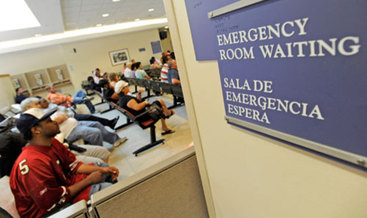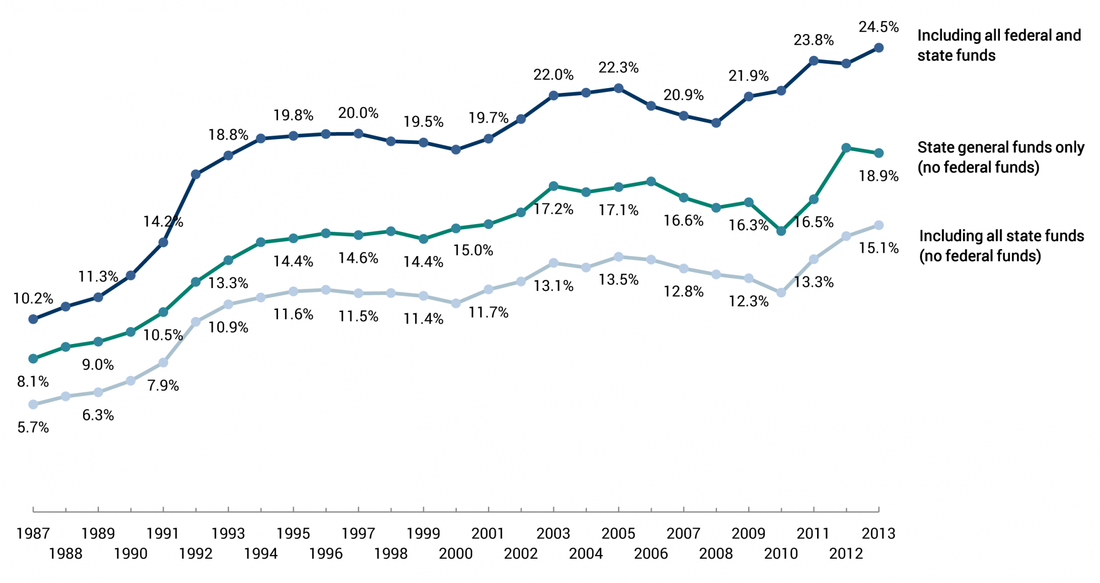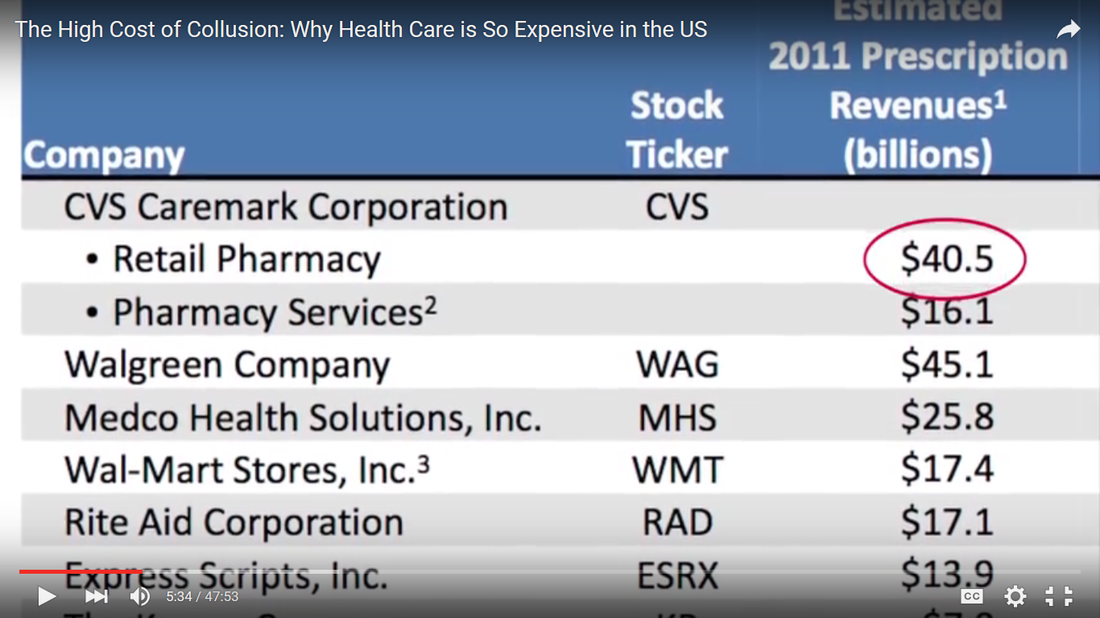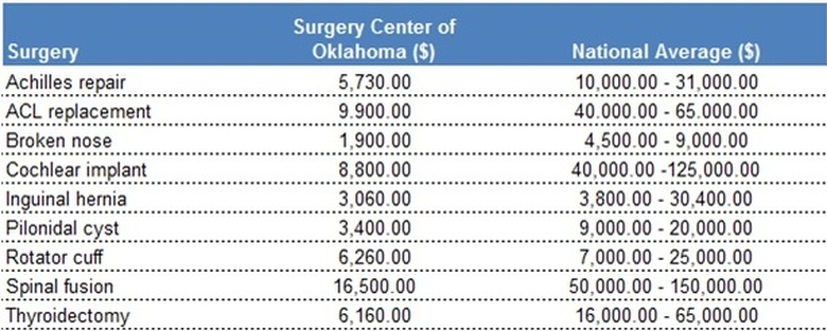|
It's an automatic response for some people to label anyone against Medicaid as being 'anti-poor' people. Those who voice their concerns that Medicaid consumes too much from state and federal budgets is considered to favor the 1% over the working class or the unemployed. What if there were 2 people, a married couple, that were not only against the idea of Medicaid, but they also took action to reduce what they felt were the disastrous effects of this government program for the poor? Introducing The Zarephath Health Center Drs. John and Alieta Eck started the Zarephath Health Center in Somerset, NJ as a means to see and provide care for those with limited income, are on Medicaid or have no insurance at all. One significant attribute of the Eck's free clinic is that the Zarephath Health Center doesn't cost taxpayers a single dime. This is a key distinction considering that Medicaid's percentage of state and federal budgets has consistently gone up over the years while people seek to make the best use of the money they do have. The rising costs of Medicaid always leads to state politicians restructuring how Medicaid is provided. Here is an example on how Massachusetts has looked to make Medicaid more of a benefit to patients. After going over Mass. Gov. Charlie Baker's plan you'll see he is not saving money for the taxpayers of Massachusetts at all when it comes to Medicaid. Instead, he is just shifting the process of how Medicaid is paid for. Reduced amount of payments early on and a heavier more expensive payment load in the future. In attempt to help Medicaid patients have easier access to doctors, some states have decided to increase how much money a doctor receives to see Medicaid patients. (Increased taxpayer costs). On the other hand, by using a system of charity the Zarephath Health Center can see up to 400 patients a month without a single penny coming from taxpayer money.  While state and federal budgets are key issues, a more important concern is how good the quality of care is a patient receives when you compare Medicaid with a facility like the Zarephath Health Center. As was just stated, Dr. Alieta Eck's free clinic sees up to 400 patients a month. The purpose for her health center is to provide normal patient visits to as many people as possible that currently cannot pay for their own care. A lot of her patients still choose to see her even though they have Medicaid. These patients know that a personal direct relationship with a doctor is much more valuable than having to wait a longer than average time for limited access to a doctor as is often the case with Medicaid patients. See here, here and here. This is a charity that Dr. Alieta Eck and her husband Dr. John Eck is in control of. They schedule appointments with patients accordingly to make sure each patient's needs and concerns are addressed. They don't have to worry about a government mandate that forces them to see patients that they cannot provide proper care towards. Having such a mandate can be a detriment to the patient when they are trying to see a doctor that only has so many hours in a day to see as many patients as possible. The attention to quality and care suffers.. Nice Story About a Local Town or Can Free Care Minus Government Funding Become Mainstream? According to Dr. Alieta Eck, her research and communications with other doctors leads her to believe that what she does at the Zarephath Health Center can become standard protocol all across the country. Dr. Eck mentions in a few interviews that there are many doctors who would love to provide time out of their weekly schedule to help provide free care to the poor. One hurdle that gets in their way is they are afraid of malpractice suits. One solution that Dr. Eck believes will resolve this issue is why she 'is working to enact NJ S239 in New Jersey whereby physicians would donate their time caring for the poor and uninsured in non-government free clinics in exchange for the State providing medical malpractice protection within their private practices. She is convinced that this would relieve taxpayers of much of the Medicaid burden currently consuming 1/3 of the NJ budget.' (2) Charity to Pick People Up What is appealing to me about how the Zarephath Health Center works is that this is an example of true charity in action. Hundreds of people that currently have limited means are still being helped via the skill and volunteerism of people who care. It's entirely possible that as people receive true charity care they might have a better chance of improving their own life conditions. Dr. Alieta Eck has stated that some patients that use the Zarephath Health Center during tough times have gone on to find jobs or a better income and lifestyle for themselves and are now able to handle paying for their own care at traditional health facilities. During this election season we will no doubt hear accusations and promises from politicians when it comes to our healthcare system. Pay attention to what your favorite candidate says. Are these politicians just reshuffling your taxes but still using more of your state's and federal budget? Or is there a better way to provide care to patients in need without creating an ever increasing burden on taxpayer funds? The Zarephath Health Center has proven for over a decade that true charity free of taxpayer involvement can work. -- Ricky Moore Footnotes(2) http://www.theconservativepundit.net/meet-the-pundits/dr-alieta-eck-md/
Regarding cases where malpractice issues come up: 'The exclusive remedy for injury or damage suffered as the result of any act or omission of the volunteer medical professional is by commencement of an action against the State in a court of competent jurisdiction.' -- In other words, patients should keep records of everything possible that is discussed in the event these records are needed to help prove their case in court. While malpractice suits are unfortunate and do happen it shouldn't cast a shadow of not only the potential good that comes from charity care but the good that has already been experience by patients. If the Zarephath Health Center sees up to 400 patients a month then we can be a little conservative and use 350 patients for my example. 350 patients a month adds up to 4,200 patients a year. Over the past 5 years would mean that up to over 20,000 patients have been seen and have had their needs addressed, again, without taxpayer money. In my view this is a far more efficient system of healthcare than what we currently have in place for people with low incomes who are on medicaid.
0 Comments
When describing how he felt compelled to provide high value/affordable care to patients, Dr. Josh Umbehr sums it up this way, 'I was young and dumb.'
He actually isn't dumb at all but was making a point that he had no interest in getting bogged down with the minutia of heavy paperwork, wasting time dealing with insurance companies that dictate the kind of care a patient receives and how they will pay for such care. Dr. Umbehr, a family medicine physician, saw right from the start that there is a better way to provide meaningful care that his patients would appreciate. This is how he and his business partner, Doug Nunamaker, MD started Atlas.MD. Access to Your Doctor...Anytime
Dr. Umbehr believes the best way to be there for his patients is to have a close, direct relationship with them. Atlas.MD provides a membership fee plan that gives patients 24/7 access to go over their health concerns.
As Dr. Umbehr likes to describe, it's like comparing Netflix to Blockbuster. Whereas a customer had to travel to a Blockbuster to pay about $4 to $7 dollars for a couple of rentals at a time, Netflix forced a paradigm shift by offering 1,000's if not 10,000's of movies and shows instantly for under $8 a month. As far as Atlas.MD patients are concerned, they can:
The above services and benefits are included with the patients monthly membership fee.
The first step in a patient taking control of their healthcare is deciding if the value that Atlas.MD provides is worth the monthly fee that they would agree to pay. This is an example of how things should be in a free market healthcare system:
It is Atlas.MD's responsibility to fulfill the promises stated in their contract agreement with their patients. Just like a consumer will stop going to a store that doesn't provide a good enough service, a patient is free to stop their membership at anytime if they believe their issues have not been addressed or if they have found better value from a healthcare facility elsewhere. The patient has control of how they seek the care they need.
It appears Atlas.MD has provided great value to their patients. Membership count has gone from 0 to 1500 patients in about 3 years as of 2014. The growth in their practice, to a great degree can be attributed to more patients seeking ways to reduce their overall healthcare costs in the age of the Affordable Care Act. Patients are attracted to knowing exactly what their money is paying for. Their membership brings more than just financial value. Peace of mind and a sense of control brings added comfort as well. Reducing the stress involved in discussing their care as opposed to some Medicaid patients that become frustrated with the delays in getting their health issues resolved.
It is not Atlas.MD's goal to get rid of health insurance companies however their system can reduce their patients health insurance costs dramatically.
This is because their practice covers more of the day to day issues that their patients can likely handle on their own which leaves just the major, more vital, catastrophic events to be covered by insurance companies. Regarding insurance premiums, Dr. Umbehr states as a matter of fact that Atlas.MD has been able to reduce insurance premiums for families and employers by up to 60% in the first year. Atlas.MD is located in Kansas. Fortunately all around the country there is a growing trend of the Direct Primary Care model that they have brought to the mainstream and continue to perfect. As this kind of concierge service grows. Patients that use this system of healthcare will have more time, energy and money for themselves to use as they see fit. In other words, people make clear, direct choices with their money and time and they are able to quickly see the results of their decisions. In Atlas.MD's case, they are busy bringing value that their members chose to have for themselves without any insurance company getting in the way. Exactly as it should be in the free market model. Ricky Moore Independent Asset Management Agent
.
The Direct Primary Care Podcast:
|
|
It is obvious to everyone that healthcare expenses are very high and the quality of healthcare provided doesn't seem to improve along with the rising costs.
Most people blame doctors' incomes for the expensive costs of healthcare. This Forbes article shows that doctors shouldn't be the main scapegoat for high medical costs. |
Here's an excerpt:
'...physicians are not necessarily the principal beneficiaries of healthcare spending. The bulk of medical procedure payments go to hospitals and device manufactures. For example, in California, Medicare pays on average $18,000 for a total hip replacement – $16,336 to the hospital and $1,446 to the surgeon. This reimbursement disparity is certainly not limited to California, and is representative of a broader trend on a national level.'
Based on available figures the majority of the costs patients pay goes to administrative costs.
In this case above, the doctor's compensation is roughly just 8% of the $18,000 cost of the total hip replacement.
Approximately 92% of the $18,000 went to the hospital and the device manufacturer(s).
A 2008 New York Times article had this to say about the extra spending:
'One thing Americans do buy with this extra spending is an administrative overhead load that is huge by international standards. The McKinsey Global Institute estimated that excess spending on “health administration and insurance” accounted for as much as 21 percent of the estimated total excess spending ($477 billion in 2003). Brought forward, that 21 percent of excess spending on administration would amount to about $120 billion in 2006 and about $150 billion in 2008.'
Money spent on hospital administrative and 3rd party costs drives up the price for healthcare far more than a doctor's compensation. This can be an issue for patients as care and service can be delayed while paperwork/fees goes through different departments of the hospital's administrative process.
Can at least some of the bloated administrative costs be reduced?
What would happen if a doctor was able to deal directly with the patient without bureaucracy and 3rd parties getting in the way and driving up costs?
Perhaps the best example of what can be done is happening at the Surgery Center of Oklahoma.
'...physicians are not necessarily the principal beneficiaries of healthcare spending. The bulk of medical procedure payments go to hospitals and device manufactures. For example, in California, Medicare pays on average $18,000 for a total hip replacement – $16,336 to the hospital and $1,446 to the surgeon. This reimbursement disparity is certainly not limited to California, and is representative of a broader trend on a national level.'
Based on available figures the majority of the costs patients pay goes to administrative costs.
In this case above, the doctor's compensation is roughly just 8% of the $18,000 cost of the total hip replacement.
Approximately 92% of the $18,000 went to the hospital and the device manufacturer(s).
A 2008 New York Times article had this to say about the extra spending:
'One thing Americans do buy with this extra spending is an administrative overhead load that is huge by international standards. The McKinsey Global Institute estimated that excess spending on “health administration and insurance” accounted for as much as 21 percent of the estimated total excess spending ($477 billion in 2003). Brought forward, that 21 percent of excess spending on administration would amount to about $120 billion in 2006 and about $150 billion in 2008.'
Money spent on hospital administrative and 3rd party costs drives up the price for healthcare far more than a doctor's compensation. This can be an issue for patients as care and service can be delayed while paperwork/fees goes through different departments of the hospital's administrative process.
Can at least some of the bloated administrative costs be reduced?
What would happen if a doctor was able to deal directly with the patient without bureaucracy and 3rd parties getting in the way and driving up costs?
Perhaps the best example of what can be done is happening at the Surgery Center of Oklahoma.
Surgery Center of Oklahoma Price Comparison
The founding doctors, Dr. Keith Smith and Dr. Steven Lantier, own their facility. They do not work for a bureaucratic hospital. They tell patients their prices upfront so you can compare them to hospital surgeons fees.
When asked how the Surgery Center of Oklahoma can offer these lower prices to patients, Dr. Keith Smith has mentioned in several interviews that he doesn't have to waste his and the patient's time dealing with hospital administration actions and insurance companies that raises costs and interferes with the care provided to his patients.
People come to the Surgery Center of Oklahoma from all over the world for medical services, patients even come from Canada (the country that's supposed to have a good reputation for healthcare).
By working with the patient directly and not having to deal with expensive hospital overhead costs, this surgery center can just offer the costs of the service which translates to steep price discounts for the patient.
According to Dr. Keith Smith, who helped start the Surgery Center of Oklahoma back in 1997, he gets letters every week from patients who are happy to tell him that they had their local hospital lower their original price and match the Surgery Center's price for medical service. Hospitals are forced to either reflect a more honest pricing system or lose their patients to facilities like the Surgery Center of Oklahoma.
While politicians argue and blame each other for rising healthcare prices. The Surgery Center of Oklahoma is successfully providing much needed high quality medical care while also eliminating the bureaucracy of 3rd parties. They have shown how healthcare costs can be reduced by having a system of transparent pricing. Allowing patients to see where their money is going when they pay for medical services. Price transparency is a rare occurrence in our current healthcare model system. Many times even doctors aren't aware of medical costs, they just tell their patients that it will be ok because their insurance covers the prescription or operation.
With price transparency and direct patient/doctor communication, patients have a better understanding of how much of their hard earned money is actually going towards their medical care as opposed to wasting away deep into the hospital administrative process.
The Surgical Center of Oklahoma shows people that there is a better option other than waiting for politicians and bureaucrats to solve the problem.
HealthyAssets.org will provide information on how people are finding ways to reduce their healthcare costs while also receiving high quality care.
Videos related to this article
Dr. Keith Smith Explains How & Why the Surgery Center of Oklahoma can offer High Quality Low Cost Care
Billing Terms Can Increase Your Hospital Costs
A theme mentioned in this article is for patients to have a direct relationship with their doctor so they can have more control of decisions regarding their care. I should still mention that I do believe that patients should do as much research as possible when it comes to the opinions and statements made by their doctor.
Whatever situation you may go through, search online to see how other people have received care for the same issue and how successful they were at restoring their health. See what options are available and which option you feel most comfortable with and then explain your thoughts to your doctor.
This way there is a true meeting of the minds as opposed to just accepting what your doctor has to say. This is the reason for getting a second opinion but now with information all over the internet you can research even more opinions and search for the evidence that backs up the claims of other people. Your health is too important for just one person to decide what must be done for you. To your health -- Ricky Moore.
Whatever situation you may go through, search online to see how other people have received care for the same issue and how successful they were at restoring their health. See what options are available and which option you feel most comfortable with and then explain your thoughts to your doctor.
This way there is a true meeting of the minds as opposed to just accepting what your doctor has to say. This is the reason for getting a second opinion but now with information all over the internet you can research even more opinions and search for the evidence that backs up the claims of other people. Your health is too important for just one person to decide what must be done for you. To your health -- Ricky Moore.
Blogs
Observing the Cause/Effect cycle of economic systems.
Archives
November 2020
January 2017
December 2016
October 2016
July 2016
May 2016
April 2016
March 2016
February 2016
January 2016




 RSS Feed
RSS Feed